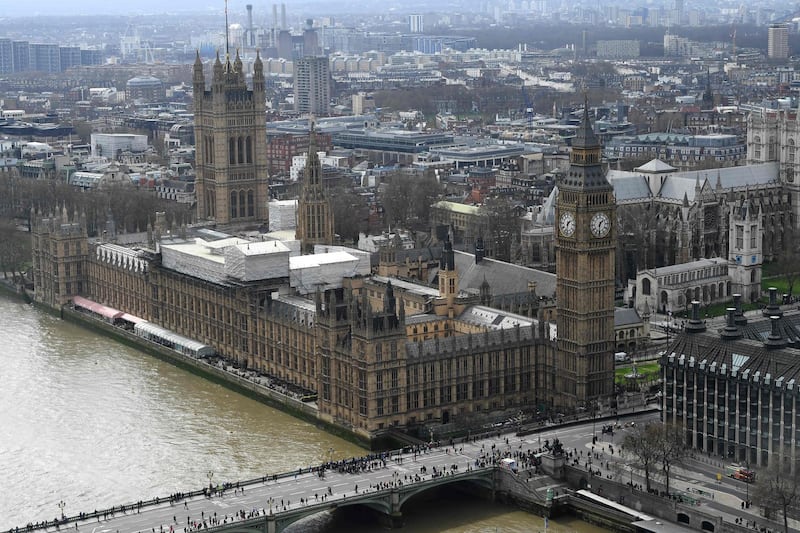Britain's House of Lords inflicted an embarrassing defeat on Theresa May's government on Wednesday, challenging her refusal to remain in a customs union with the European Union after Brexit.
The Lords voted 348 to 225 in favour of an amendment to the prime minister's Brexit blueprint, the EU (Withdrawal) Bill, which would require ministers to report on what efforts they had made to secure a customs union by the end of October.
It is the first defeat for the government's key Brexit bill. While the change can still be rejected when the bill returns to the House of Commons, the vote could also push the UK toward closer ties with the European bloc.
The size of the Lords vote is likely to embolden members of her Conservative Party in the elected House of Commons who want to soften Brexit and retain closer trading ties with the EU.
The prime minister has rejected staying in the EU customs union because it prevents Britain pursuing an independent trade policy, which for the most enthusiastic Brexit supporters in her party is a crucial benefit of leaving the EU bloc. If she reneges on that Mrs May risks a leadership challenge.
British Labour Party politician Andrew Adonis called it a "crushing"defeat that could trigger the "beginning of the end of Brexit".
Crushing Government defeat on Customs Union in Lords may be the beginning of the end of Brexit. Will probably be upheld in the Commons next month, with Tory rebels. Then we move on to Single Market & People’s Vote on the final Brexit deal #stopbrexit
— Andrew Adonis (@Andrew_Adonis) April 18, 2018
Shadow Brexit Secretary and Labour MP Sir Keir Starmer said it was a step forward for those arguing that the UK ought to stay in a customs union with the EU. "It is a very significant victory, not only because of what it says but the size of the majority in the House of Lords."
Sponsors of the cross-party amendment included former Conservative Party Chairman Chris Patten.
“There are times in one’s political career when what is alleged to be party loyalty comes way behind trying to stand up for the national interest,” Mr Patten said during the debate that preceded the vote.
“In doing that I think I will be repeating what I would have been able to say with the full support of my party for most of the time I’ve been a member of it.”
_____________
Read more
[ With Brexit looming, Britain is looking for new Commonwealth allies ]
[ Britain eyes Brexit boost from Commonwealth summit ]
_____________
John Kerr, who proposed the amendment, says it's an attempt to "limit the damage" of leaving Britain's biggest market.
While the Conservative-led government says Britain will leave the EU's customs union and single market after it quits the bloc next year, some lawmakers and businesses want to retain a customs union to avoid tariffs and border checks.
The amendment requires ministers to make a statement to Parliament before October 31 outlining “the steps taken” in the divorce talks to negotiate “an arrangement which enables the United Kingdom to continue participating in a customs union with the European Union.”
An official told Bloomberg that the government wasn’t overly concerned because it interprets that wording as only a requirement to make a statement about its efforts to discuss staying in a customs union. In effect, the government could state that it had not made such an effort because it would run contrary to its planned post-Brexit trade policy, the person said.
It's unclear whether the amendment will survive when the bill becomes law. The House of Commons has the power to overturn changes made by the unelected upper house.






